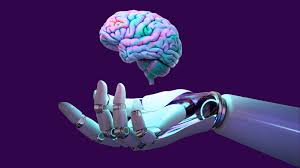Navigating the Future of Retail with AI and Human Intelligence
The retail landscape is rapidly evolving, propelled by technological advancements and changing consumer expectations. As AI technologies infiltrate various sectors, the retail industry faces a pivotal question: should AI or humans run retail stores? This debate centers on the balance between efficiency and personal touch, where both AI and human employees have unique strengths and limitations.
Efficiency and Personalization through AI
Automated Inventory Management: AI excels in managing vast amounts of inventory data, optimizing stock levels based on real-time sales trends. For instance, AI systems can predict with up to 85% accuracy which products will sell best during certain periods, helping stores reduce overstock and shortages. This precision in inventory management can lead to a reduction in holding costs by up to 25%.
Customer Insights and Personalization: Advanced AI algorithms analyze customer data to provide personalized shopping experiences. By tracking purchase history and browsing behaviors, AI can offer tailored recommendations, much like online giants such as Amazon and Netflix have done. This personalization can boost customer satisfaction and loyalty, with businesses reporting up to a 35% increase in sales due to targeted marketing strategies driven by AI.
Seamless Checkout Processes: AI-driven systems like autonomous checkouts eliminate the need for manual scanning of each item, reducing queue times and enhancing customer convenience. Stores like Amazon Go utilize AI to allow customers to simply grab items and go, charging them automatically through mobile apps. Such innovations have cut down checkout times by more than 50%, significantly enhancing the shopping experience.

The Human Touch in Retail
Customer Service and Experience: Despite AI’s capabilities, human employees are irreplaceable when it comes to delivering personalized customer service with empathy and understanding. Human interactions can transform a routine shopping trip into an enjoyable experience, fostering a connection that AI currently cannot replicate. Studies show that 65% of customers prefer dealing with human employees, especially for complex issues and high-value purchases.
Flexibility and Intuitive Decision-Making: Humans excel in scenarios requiring flexibility and intuitive decision-making. Unexpected situations such as handling a dissatisfied customer or adapting store displays based on sudden changes in consumer trends benefit from human insight and creativity.
AI and Human Collaboration: The Ideal Model
Integrating Strengths for Optimal Results: The ideal retail environment integrates AI’s analytical prowess with human empathy and creativity. AI can handle repetitive tasks and data analysis, allowing human employees to focus on customer interaction and service that require a personal touch. This synergy not only boosts operational efficiency but also enhances customer satisfaction.
For a deeper analysis on the roles of AI or human in retail, explore AI or human.
Final Thoughts
The question of who should run retail stores isn't about choosing AI over humans but rather how best to integrate the two. While AI can streamline operations and offer personalization at scale, human employees provide the irreplaceable value of emotional intelligence and personal connection. The future of retail lies in leveraging AI to enhance, not replace, the human elements that define the shopping experience. This balanced approach promises to redefine retail in ways that maximize efficiency while maintaining the personal touch that consumers cherish.
